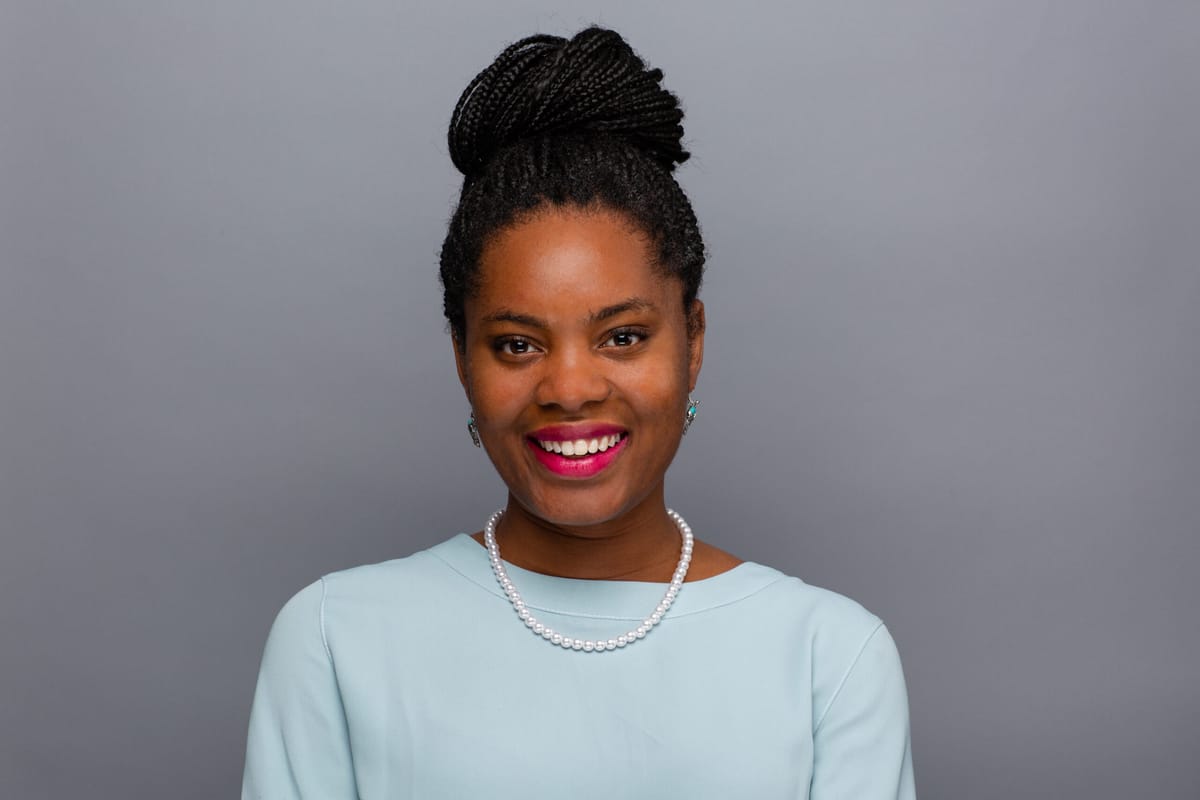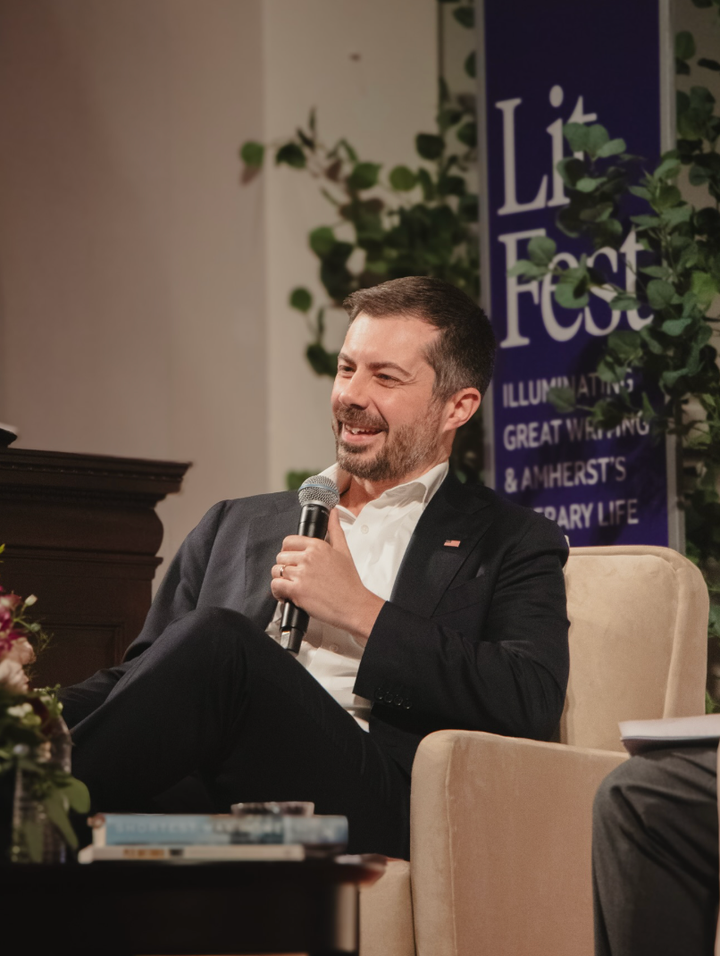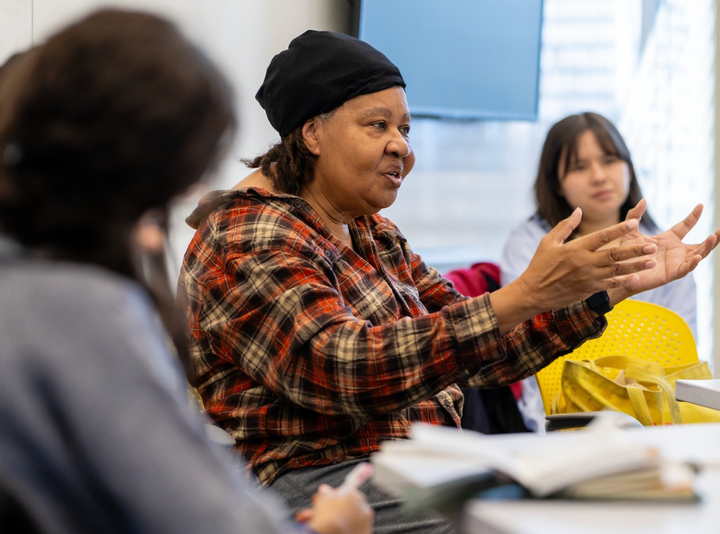Studying Care Among HIV-Positive Black Caribbean Women

Jallicia Jolly, a Consortium for Faculty Diversity pre-doctoral fellow and visiting instructor of American studies and black studies at the college, presented her dissertation work at Frost Library’s Center for Humanistic Inquiry last month on Nov. 12. Her presentation was titled according to three acts: “How We Sex,” “How We Die” and “How We Memorialize.” Large questions with broad and urgent implications emerged on the horizon with Jolly’s research. The full title of her dissertation is “Ill Erotics: The Politics of Care and Self-Making Among HIV-Positive Black Caribbean Women.”
“I enjoy exploring the dimensions of life, politics, and survival in different cultural contexts,” she said when she spoke to me. “That’s what brought me to ethnography and this work.”
Jolly’s work explores the lives of HIV-positive black women in Jamaica as they navigate the contradictory relationships between their communities, health institutions, the state, global development agencies and the everyday politics of their lives. While researching, Jolly spent 16 months doing fieldwork in Jamaica, 10 of which were uninterrupted. She researched through various mediums — ethnographies, oral histories, cultural artifacts, political cartoons and demographic surveys. Jolly’s work seems to abide around anecdotes of playful and provocative resistance to dichotomies, creation of space and self and lively care in communities of people living with illness that open up possibilities for the women within them.
Jolly was born in Rae Town in Kingston, Jamaica and grew up in a predominantly African American and Caribbean community in Flatbush, Brooklyn, where she attended a mainly Latinx and black high school. This background served as her introduction to the theories and politics she studies today. As a high school student, Jolly began organizing for a group called Project Reach Youth, which trained people in marginalized communities on how to tell their own stories and become peer advocates.
At the time, HIV was among the leading causes of death for women ages 24-35. “I was exposed to the conversations that often framed certain populations, particularly women of color and especially black and immigrant groups, as the ‘carriers of diseases’ and as ‘links between HIV and the general population,” Jolly said. Today, this formative experience informs Jolly’s approach to scholarship: “The theory-making occurs in activist circles, on the ground, in feminist alliances, in quotidian life,” Jolly said. “That is what shapes what I theorize, what I write and what is evolving from my approach to knowledge production. [Activism and academia have] a very productive and imaginative relationship that works in tandem and in tension.”
Working and learning in academic spaces like the ones at the college has been rewarding for Jolly. “Academia offers a space to connect with a vibrant community of thinkers, of actors, of writers, who are really invested in asking the hard questions, in speaking the unspeakable and writing about the things we grapple with in life,” she said. Still, academia and higher education are notorious for their politics of who does and does not “belong” within their spaces. Jolly says her status as a first-generation college student was both a rich asset and a challenge. Many of the skills she needed in order to navigate the institutional space — such as how to find community and how to build relationships with professors and administrators — she often had to figure out for herself. Fortunately, she was aided by mentors, staff and professors at Williams College and the University of Michigan.
“My own experiences and my conversations with other first-gen students have made clear that getting to the space is one thing, but then it’s also figuring out what to do once you’re already there,” Jolly said. How do you find community? What do you make of an enormous wealth of resources? How do you connect with professors who want to see you succeed? How do you care for yourself within landscapes that “are not often used to your multiple overlapping identities”? Retention and equity remain important concerns for many first-gen and underrepresented students and faculty.
“Often, a lot of that labor is on the people who enter the space to develop that,” said Jolly. “For me, it was helpful to find the people, the knowledge, the resources and the unlikely spaces.” She emphasized that it was important for her to identify and connect with other first-gen students: “I learned how to build those relationships in the crevices of this sort of institution to figure out how to navigate and thrive within and beyond it.” And another practice that was helpful for Jolly: “telling your experience in spaces where that sharing and receiving — that exchange — is really embraced and encouraged.”
“Ill Erotics” takes interest in spaces created by and for HIV-positive Black Caribbean women to nurture this exchange of knowledge-sharing, experiences and care. Jolly studies a particular organization, EVE for Life, which uses as its key strategy the “Mentor Mom Initiative” — a model of HIV care that pairs newly diagnosed HIV-positive women with experienced mentors who have lived with the diagnosis for a longer time. EVE for Life also hosts educational sessions in HIV prevalence cities.
Jolly describes the framework deployed by EVE for Life as a diasporic model; the particular program in Jamaica was adapted from versions in different parts of Africa, particularly South Africa and Uganda. This model is able to attend to “care that is unique because it takes into account black womens’ experiences, their relationships with each other, their intergenerational networks of knowledge-sharing and how all of those can be used as a resource and an asset to address the pandemic,” Jolly said. The strength of this particular model is that it avoids the “one-size-fits-all” approach to disease we often see elsewhere, which can fail to account for cultural specificities and structural conditions in different spaces.
People who would traditionally be called “respondents” or “participants” in a research study, Jolly calls “interlocutors” instead: “Just like one would cite Freud or Patricia Hill Collins,” says Jolly, “they [the women participating in her research] are also theorists in their own right because they’re theorizing about their lives — about power, about intimacy, about belonging and about how marginalization is wrought on living breathing bodies. So I call them my interlocutors.”
Jolly says the most significant relationships throughout her research process were the ones she developed with the HIV-positive young women who participated in her project. “They taught me how to ask the right questions,” she said. “They meant the most to me because they required that I really ask myself and grapple with, ‘What is the purpose of the research?’ … What they ask me to do, in explicit and non-explicit ways, is to ensure that my findings have real meaning for how they’re living, even after I leave the field, even after I conclude my dissertation in January.”
Midway through the presentation of her work to an audience last month, Jolly told the story of “Shanna” (a pseudonym), a 20-year-old mother of three and mentee at EVE for Life who had died from “complications related to AIDS” during the course of Jolly’s research in Jamaica,. Witnessing Shanna’s slow death became a part of what Jolly calls her own “ethnographic mourning.” Jolly coined this term as she made sense of her simultaneous roles as an ethnographer, bystander and witness to death.
Jolly said it took time to process and speak to her advisers before she decided to share this moment publicly in writing. “I tried to make sure that the ethical concerns I had about what it meant to document the lives and afterlives of black women living with HIV were reconciled with my desires to tell my ethnographic story and the life of women on a broader platform,” she said.
Jolly was aided in her decision by an article by one of her advisers, Ruth Behar, about how feelings and emotions count as knowledge, as well as later conversations with Behar and her dissertation committee. Ultimately, Jolly decided to write about her ethnographic mourning, as well as the political concerns and ethical stakes it engaged with in her project.
Jolly will defend her dissertation on Jan. 24. She plans to expand this project to incorporate the lives and transnational activism of HIV-positive black women in the U.S. and South Africa, which will support a developing book manuscript and public installation. “I want the project to illuminate how marginalized groups embody inequalities and how they develop purposeful responses to save their own lives,” Jolly said. “I hope it can inform public health workers on how to develop culturally-informed and youth-centered health interventions that prioritize young women’s psychosocial health and emotional well-being. I hope it can teach researchers how to form scholarly inquiries that pay careful attention to and honor the lives black women lead.”





Comments ()